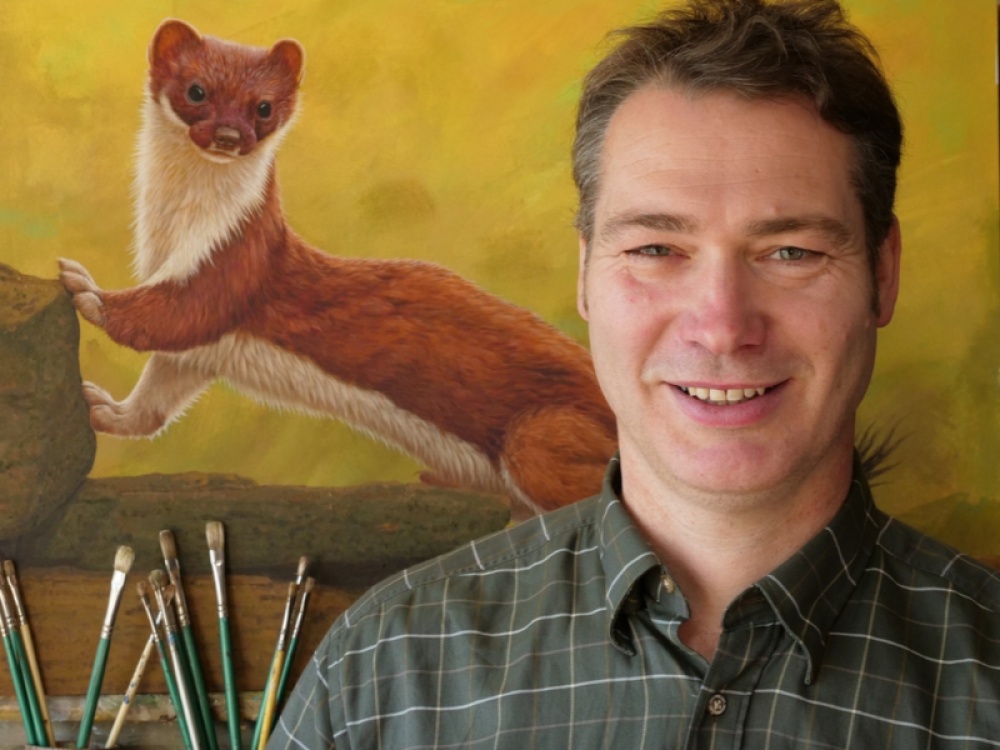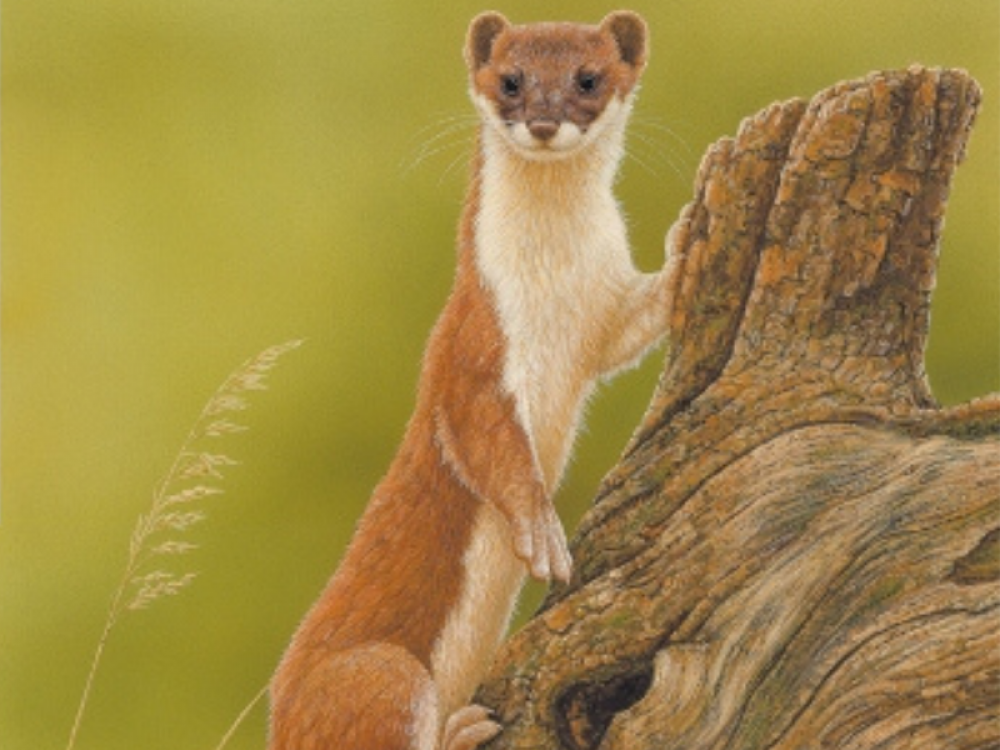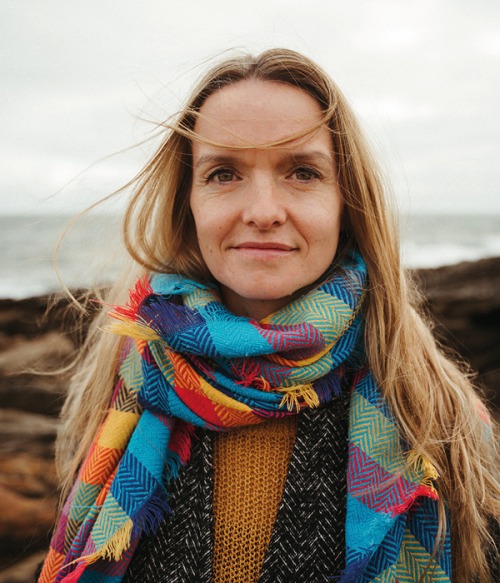Meet the Yorkshire Wildlife Artist Whose Work with Baby Stoats Found in his Garden Has Gone Viral This Month

Known as a protector of wildlife in Yorkshire, Robert E Fuller has recently been in the limelight, regularly updating the BBC audience after rescuing and nurturing a stoat back to health
Small, swift and deeply secretive, stoats are perhaps one of our most potent native predators, with the ability (and tenacity) to take on prey more than five times their own size. As long and thin as a cucumber, they are masters of disguise – even able to turn white in winter snow. Weasels are similarly active and discreet hunters, searching through tunnels and runways of mice and voles. England’s smallest carnivore, they can even slip through a wedding ring.
None of this, however, has deterred one of Britain's foremost wildlife artists, Robert E Fuller. Having made it his mission to research these elusive mammals in exquisite detail for his paintings, Robert has dedicated years to the creation of specific habitats to attract both species to his two-acre garden near Malton – deploying more than 60 surveillance cameras to follow the animals as they moved through the shrubbery, and employing two full-time members of staff to sift through the footage as it was relayed to a bank of monitors in his neighbouring studio.
‘I used to see stoats and weasels passing through my garden as part of their territory, but my sightings were always frustratingly brief, and by the time I got my camera out they were often gone,’ says Robert. ‘Both animals have always intrigued me, but I’ve never been able to watch them for long enough to paint them accurately. I really wanted to get an understanding of how their long, sinuous bodies moved and what their characters were like, and I was attracted to the challenge of how to translate what I discovered into my art.’
Read More: Arts Exhbitions and Workshops to Visit in the North East this January

Breaking new ground by filming inside the stoats’ and weasels’ ‘secret’ nests to capture rare and, sometimes, never-before-seen footage of these elusive musetlids, Robert was able to obtain evidence that challenges many of the assumptions made about these species. He captured both the brutal mating habits of stoats, the tender, playful way in which a mother weasel cares for her kits, and unravelled the mysteries behind behaviours such as the stoat ‘war dance’ – where stoats are said to mesmerise their prey by turning somersaults before delivering a deadly bite.
His trailblazing research into six generations of the same family of stoats (who all call his garden home) attracted the attention of the BBC Natural History Unit – the team responsible for programmes such as Blue Planet and Planet Earth.
‘It means a great deal that all my hard work and dedication to these two species has been recognised,’ admits Robert. ‘There is to be an hour-long programme about mustelids, and half of this documentary will be about the stoats and weasels in my garden. The programme took a year to film and the BBC were here for weeks. It was a great privilege to work with this crew – among them were some of the best wildlife cameramen in the world, including Lindsay McCrae, who filmed penguins for David Attenborough’s BBC natural history series Dynasties, and Graham MacFarlane, who’s distinguished film-making career includes a BBC focus on pangolins. The film they made here also uses footage captured by my surveillance cameras.’
Read More: Monochrome Art By North East and Yorkshire Artists
On 8th June 2019, Robert revealed his most recent collection of paintings – all inspired by his findings – at his gallery in Thixendale. The exhibition, which included some of his unique video footage and photographs of stoats and weasels, featured portraits of his favourite characters within the resident stoat family, each painted in a remarkably realistic style that reveals his understanding of each individual.
‘Both stoats and weasels are full of mischief,’ laughs Robert. ‘They can climb, burrow and swim with incredible ease, so there is always something amusing to see when you watch them. Over the years I have had a few favourites; among these is Stanley, who was born in my garden in 2016. I watched him from when he was a very young kit. He was always the most adventurous and, as a consequence, he was fairly accident prone – he was only tiny when he first fell into the pond!
At the time of writing, Robert was the only person in the world to have filmed inside wild stoat and weasel nests, recording them as they raise their families. ‘It has been a fascinating journey,’ Robert continues. ‘The main thing that I would like people to come away with after watching the programme, or visiting the exhibition, is a love for these pocket-rocket predators. Throughout history, they have had such a bad press: in children’s’ books – the Wind in the Willows, for instance – they are cast as the “baddies”, and even the word “weasel” has negative connotations, meaning to sneak or connive. I’d like people to see that these animals are so much more than that. Gram for gram, weasels are actually stronger than lions.
‘And both weasels and stoats can be so endearing, especially if you see the way they care for their own. It seems that although weasels and stoats are very common mammals, we actually know more about the habits of snow leopards. I think it’s about time we get to know our natural neighbours better.’







